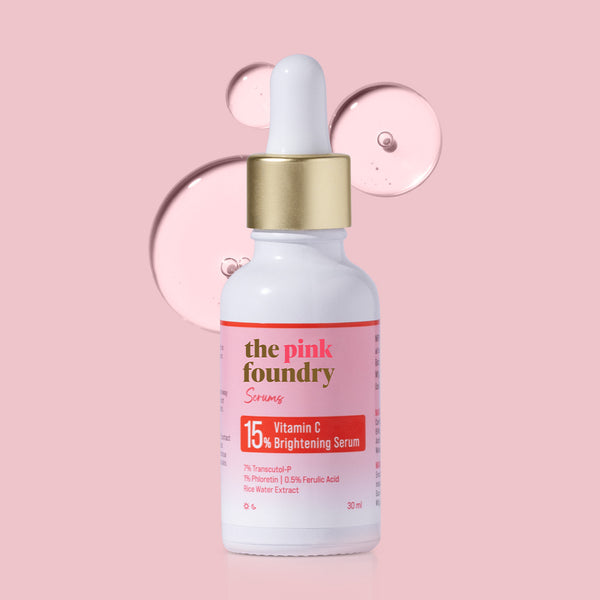Sodium Citrate in Skincare

Introduction
The world of personal care and beauty strongly emphasises the use of valuable and effective ingredients for the skin. With many benefits, sodium citrate is one of the most essential ingredients in skincare products.
As a multifunctional ingredient, sodium citrate has many advantages when considering cosmetic formulation and skin health. In this blog, we will look at sodium citrate and why it has become a staple for skin care. But before that, let's check out what is sodium citrate.
What is sodium citrate?
Simply put, it is a naturally occurring salt often found in limes, lemons, and other citrus fruits. However, in the world of skincare, it has many uses. One of its primary functions is balancing the pH levels. It contains mild yet limited preservative properties along with antioxidants.
Because sodium citrate is a highly gentle ingredient, it is suitable for all skin kinds, even delicate ones.
Use of sodium citrate in skincare
In cosmetology, different formulas are designed to treat the skin in-depth and contain various ingredients. Among AHA, one of the big names is citric acids. It contains sodium citrate, which has the primary function of balancing the pH level. Here are some of the uses of sodium citrate in skincare:
-
Cleansers
Commonly, sodium citrate is used in facial cleansers and body washes to maintain the pH balance. It ensures these products cleanse without preventing the skin from getting natural oils.
Additionally, it soothes and hydrates inflamed and irritated skin and treats the breakouts that already exist, preventing further breakouts.
-
Moisturisers
Sodium citrate acts as a pH buffer and a stabiliser in a moisturiser. It enhances a product's ability to protect and hydrate the skin. It also regulates excess sebum and oil production.
-
Serums
Among high-performance skincare products, serum contains active ingredients like retinol, vitamin C and sodium citrate to increase the stability and prevent degradation.
Speaking of serums, if you are looking for the finest option that contains sodium citrate, consider the 15% Vitamin C Brightening Serum.
Just take a few drops and spread it evenly. Apply it evenly by gently patting it on your skin. Make sure that the serum is absorbed before you start layering. You can use this twice daily for up to 4 weeks. During the day, you can follow this up with SPF and go for a moisturiser at night.
-
Sunscreens
Sunscreens benefit from the inclusion of sodium citrate as it assists in maintaining the stability and integrity of the formulation, ensuring consistent protection against UV rays.
Benefits of sodium citrate for skincare
Now that you know sodium citrate's meaning, let's examine its benefits. Its primary role is to stabilise a formula's pH to neutralise the unpleasant odours or the proliferation of the potential bacteria that may embed themselves. Additionally, The ingredient corrects the extra high pH in foaming skincare products.
But that's not all. Here are some other sodium citrate benefits:
-
pH stabilisation
Sensitive skin needs special care from the products that maintain the natural balance. By stabilising the pH, sodium citrate prevents sensitivity and irritation. This role is all the more vital for reactive skin formulation.
-
Antioxidant characteristics
There are a lot of antioxidant properties present in sodium citrate. It helps protect the skin from damage that is caused by free radicals. These free radicals are unstable molecules that can damage the skin cells. It will ultimately lead to wrinkles and fine lines. By neutralising these free radicals, sodium citrate assists in maintaining healthy and youthful skin.
-
Chelating agent
Other than regulating pH, it also acts like a chelating agent. It neutralises and captures metal ions, which could have otherwise changed the stability and quality of the skincare products. This trait is vital for preservatives and active ingredients, which ensures their effectiveness over time.
-
Stability enhancement
The skincare items often come with many active ingredients that can, over time, decrease their effectiveness. Sodium citrate enhances these formulations' stability. It prolongs the shelf life and makes sure the active ingredient stays potent.
-
Odor masking
Comfort is an essential part of skincare. Sodium citrate excels in this property by reducing or neutralising unpleasant odours.
-
Moisture retention
This pillar ingredient can also assist in maintaining the skin's moisture balance. It works perfectly with other active agents to increase the skin's ability to retain water.
Precautions while using sodium citrate
While introducing sodium citrate to your skincare has many benefits, here are some of the precautions that you must follow:
- While it is used to balance the pH of your skin, too much use of it can hamper the pH balance of your skin. Therefore, make sure you are using the adequate amount.
- If you have inflamed or sensitive skin, steer clear from sodium citrate as it can trigger or increase inflammation and irritation, which delays the healing process.
- Whenever you consider adding a skincare regimen with sodium citrate, take a patch test and wait until 24 hours to get the results. It is always better to stay safe than sorry.
Wrapping Up
The role of sodium citrate in skincare is multi-faceted and significant. From helping balance the pH level to having antioxidant properties, there are various reasons why it is a must in the ingredients you use for a well-rounded skincare routine.


























































